Apprenda vs Cloud Foundry
May 29, 2023 | Author: Michael Stromann
1
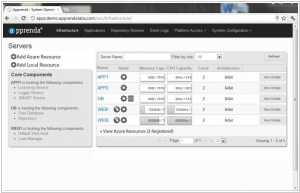
Apprenda is a software layer that transforms any infrastructure into a policy-driven, hybrid cloud application platform (PaaS). We empower enterprises to build the best next generation applications faster, using today's skill-sets & investments. PaaS should make it easier to write the first line of code rather than only add value after the last line is written.
9
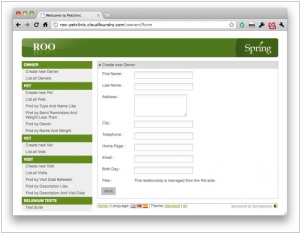
Open Source Cloud Application Platform that makes it faster and easier to build, test, deploy and scale applications, providing a choice of clouds, developer frameworks, and application services. It is an open source project and is available through a variety of private cloud distributions and public cloud instances.
Apprenda and Cloud Foundry are both popular platform-as-a-service (PaaS) solutions designed to simplify application development and deployment in cloud environments, but they have notable differences. Apprenda is a PaaS platform that specializes in enabling organizations to build, deploy, and manage cloud-native applications. It offers features such as application scaling, multi-cloud support, and application lifecycle management. Apprenda emphasizes flexibility and simplicity in the development and management of cloud-native applications. Cloud Foundry, on the other hand, is an open-source PaaS platform that provides a cloud-agnostic environment for application development and deployment. It offers a wide range of services, including app runtime, services marketplace, and buildpacks. Cloud Foundry is known for its portability and interoperability, allowing applications to run seamlessly across different cloud providers.
See also: Top 10 Public Cloud Platforms
See also: Top 10 Public Cloud Platforms
Apprenda vs Cloud Foundry in our news:
2017. Cloud Foundry adds native Kubernetes support
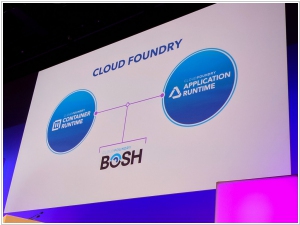
Cloud Foundry, the open-source platform as a service (PaaS) offering for enterprise, made an early commitment to Docker containers. However, with the introduction of Kubo, a tool donated to the project by Pivotal and Google last year, Cloud Foundry gained a new capability to rapidly deploy and manage a Kubernetes cluster. Kubernetes, an open-source container orchestration tool backed by Google and emerging as the industry standard for container management, is now an integral part of the Cloud Foundry platform under the new name "Cloud Foundry Container Runtime." The collaboration between Google, Pivotal, and Cloud Foundry in developing this integration comes as no surprise.
2015. Enterprise PaaS company Apprenda raises $24M
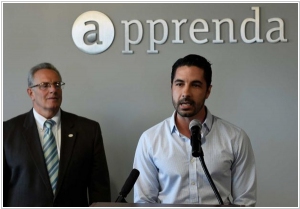
Apprenda, a provider of enterprise platform as a service (PaaS), has successfully secured a $24 million Series D funding round led by Safeguard Scientifics. Apprenda, like other enterprise PaaS services, aims to simplify the process of building modern software for enterprise developers on its infrastructure. What differentiates Apprenda from its competitors is its ability to seamlessly integrate with existing infrastructure and applications within enterprises. The company plans to utilize the newly raised funds to expand its engineering, product, client services, and sales teams, with the goal of driving wider adoption of its enterprise PaaS. Sinclair Schuller, CEO and co-founder of Apprenda, emphasized the customer-centric approach, stating, "We believe PaaS is only doable one way—the customer's way. This means our technology had to be built to support everything upstream and downstream from our platform in a highly compatible way. And because of this, our vision of helping enterprises convert their data centers into cloud platforms supercharged for developer productivity has become a reality."
2014. Apprenda teams with Piston to gain OpenStack support

Enterprise Platform as a Service provider Apprenda, initially focused on .NET and Windows for its Platform-as-a-Service offering but later expanded to include other languages and technologies, has formed a partnership with Piston Cloud, the developer of a private CloudOS, to align with the OpenStack ecosystem. Together, Apprenda and Piston will deliver an integrated solution that empowers agile software development teams to accelerate the creation of Java and .NET cloud applications and microservices within a truly hybrid cloud environment. Given the growing adoption of both PaaS and OpenStack solutions among enterprise developers, this collaboration presents a compelling joint solution.
2014. PaaS platform Apprenda adds JBoss support
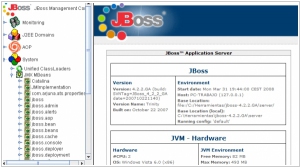
Apprenda, a company that supports a private Platform as a Service (PaaS) for running Java and Windows applications, is expanding its capabilities by introducing JBoss and Tomcat support. This integration allows for deeper integration with popular Java workloads. Initially, Apprenda focused on providing a Microsoft .NET-centric PaaS for businesses. However, the addition of Java support was a significant advantage for enterprise organizations that operate both Java and Windows applications. With JBoss support, Apprenda now competes more directly with Red Hat, the owner of JBoss, which promotes its OpenShift PaaS. Another player in the private PaaS market is Pivotal CF, which implements Cloud Foundry. Private PaaS solutions operate within a company's internal infrastructure or private cloud, in contrast to public PaaS offerings that rely on shared infrastructure like Amazon Web Services.
2012. Surprise! VMWare has joined OpenStack
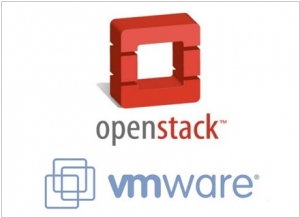
Recently we found out that the open cloud platform alliance OpenStack includes several members from EMC. It was a surprise, because EMC owns VMWare - the direct competitor of OpenStack. We thought that it was a little misunderstanding in the Swedish family EMC-VMWare. But this wasn't the last surprise in this story. In the end of the last week, VMWare personally became the "Gold member" in OpenStack. (Recall, OpenStack was founded two years ago in order to struggle against the dominance of Amazons's public cloud and VMWare's data-center cloud management systems). Together with VMWare two more giants: Intel and NEC joined OpenStack on Friday. So now, on the cloud platform market we have the confrontation: Amazon vs "Everyone else". You may think that the forces are not equal, but ... ***
2011. SaaS vendors using third-party PaaS as their own

An interesting new trend is emerging: SaaS vendors start to use third-party PaaS services as platforms for their own clients and partners. Let's first consider the ordinary situation. For example, there was such SaaS provider as Salesforce. And it provided the online CRM system. The system was growing but the customers wanted more and more new features. Then Salesforce management thought: "we can't implement so many features, and it's not right to make the system too complicated. Let's better create a (PaaS) platform, and let our customers and partners create add-on apps and functions themselves. That's how Force.com appeared. And many others SaaS vendors headed the same way: Google, NetSuite, Intuit, Box.net ... But not all SaaS-providers are so mighty to create own PaaS platform. Or maybe creating own PaaS-platform - is not the smartest option. Why not use one of the existing PaaS-services, such as Force.com? ***
2011. VMware wants to revolutionize PaaS market
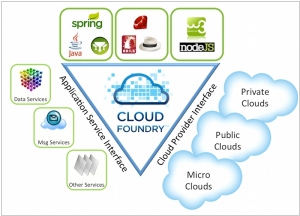
We have already noted that PaaS (Platform as a Service) - is the future of cloud platforms. For now the PaaS market is dominated by Salesforce (Force.com), Microsoft (Windows Azure) and Google (Google App Engine). Recently Amazon also entered this space with AWS Elastic Beanstalk. Of course VMWare also has its own plans regarding this market. Like Amazon, VMWare still paid more attention to another cloud technology - IaaS (Infrastructure as a Service). Its product vCloud enables service providers and enterprises to create cloud platforms that mimic Amazon EC2. But, frankly speaking, VMWare hasn't achieved great success in the IaaS-space so far, because it didn't offer something revolutionary. Having analyzed these mistakes, the company is now entering the PaaS market. And here it really wants to make a revolution. ***


